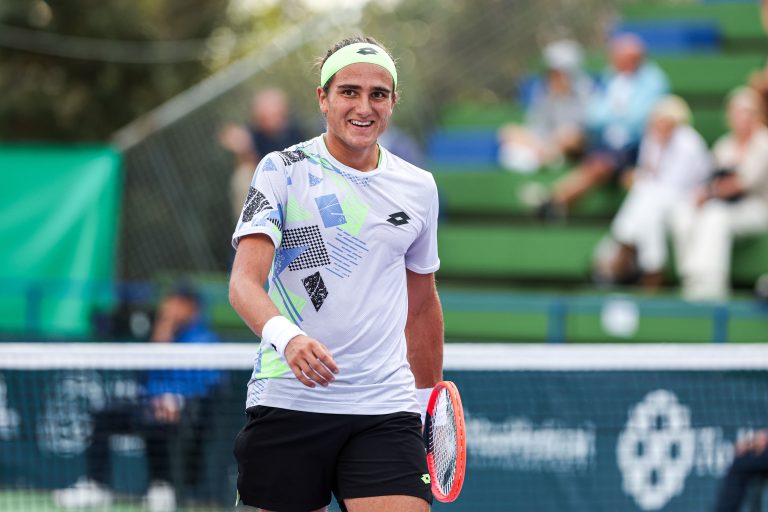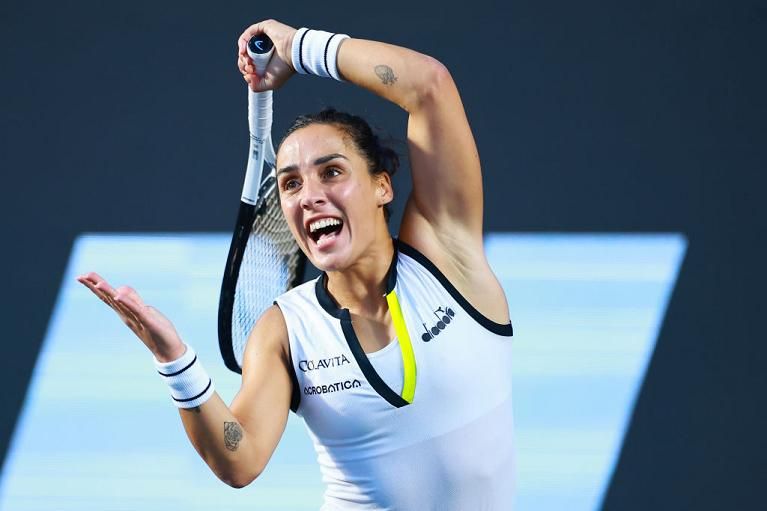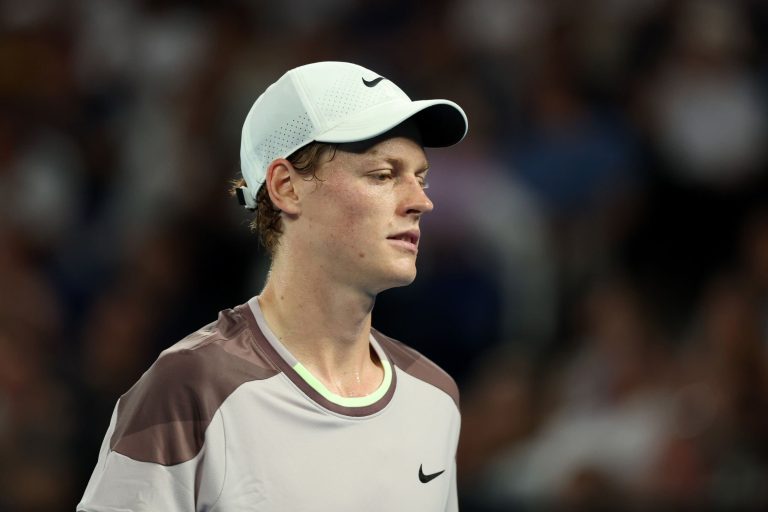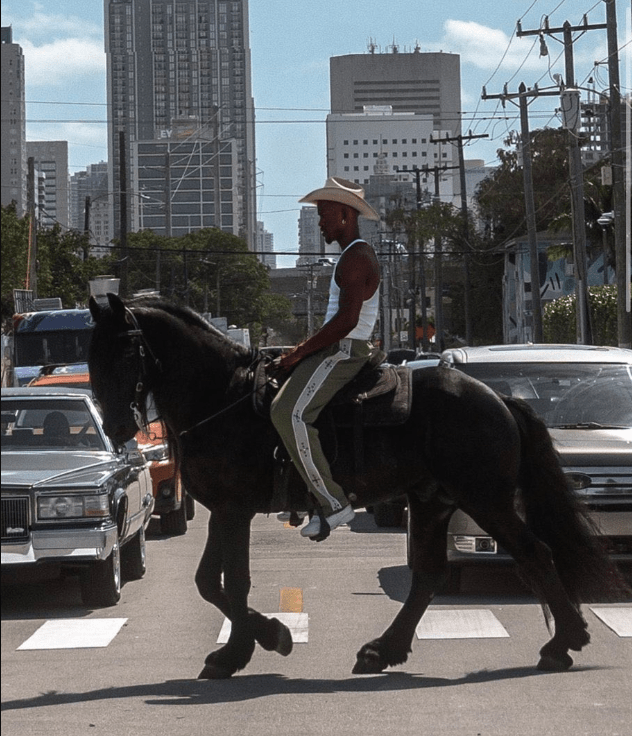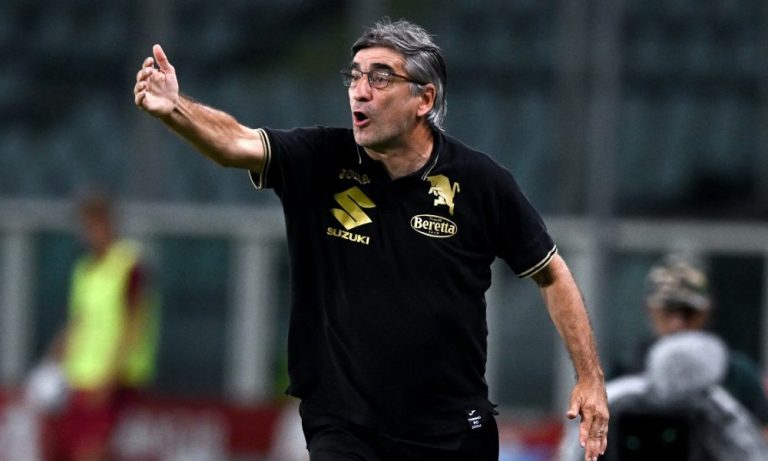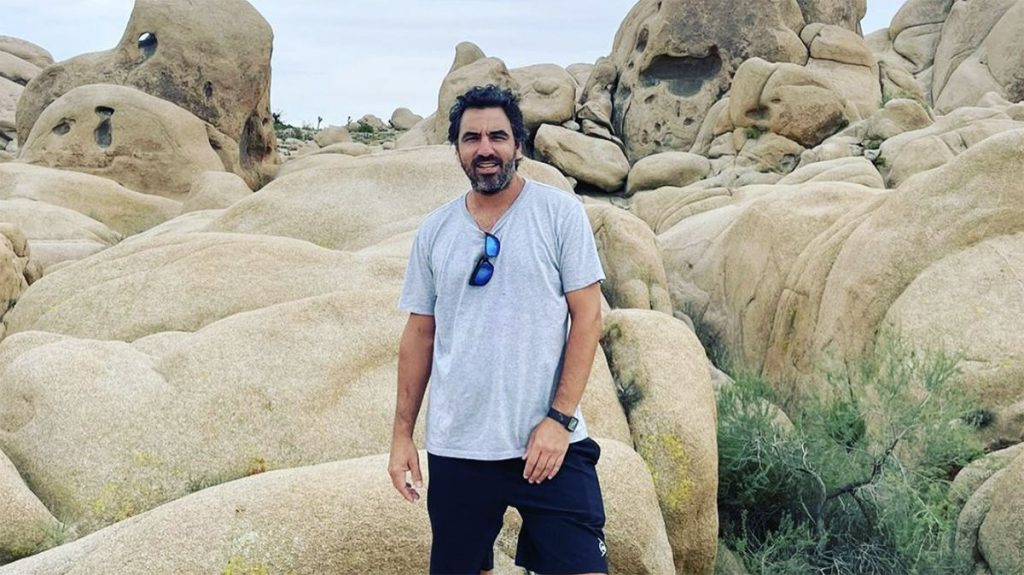
Dante Bottini (Instagram photo)
Training the youngest generation of young people is no easy task as tennis has now become a competition of who can shoot the hardest, so little thought is given to it and even in training the new recruits struggle to pay attention and listen. This is what the well-known Argentine coach Dante Bottini says: The 44-year-old trained at Nick Bollettieri’s court after a modest past as a player and was known as a historic coach of Kei Nishikori and therefore from Dimitrov, Jarry and the young Chinese Jungcheng ShangThe latter relationship was broken after the last US Open. Bottini was interviewed in Argentina by his good colleague Sebastian Torok for La Nacion. He gave a long interview in which he traced the stages of his life on the tour, talked about the changes he had experienced in recent years and the absence of Roger Federer on the tour and in the dressing rooms because of his charisma and this unique plus that he gave to every tournament and which, in his opinion, is terribly missing today.
Bottini remembers his beginnings at Bollettieri: “I started right at the grassroots level in 2008, with small groups where I didn’t even see Nick because he was one of the best in the academy. A few months later they gave me groups of girls aged 9-11 in the mornings and 15-16 in the afternoons, and then I started trying more. We had meetings that lasted many hours. I learned a lot. Nick was a phenomenon, a true tennis enthusiast, outgoing, extremely demanding and optimistic. He had very high self-esteem and he passed that on to everyone. He always went straight to the future and looked for the best. He told his life stories and motivated everyone. We had meetings several times a week where we talked about everything that was being done in the academy and he told many anecdotes. It was also a lot of fun working with him. I lived around the corner from the academy, and by 5 a.m. I was already teaching or in the gym. He walked quickly and never stopped, he was the first to come and the last to leave, and this continued until he was over 80 years old.
This photo of current tennis, taken by the coach of the Albiceleste, with a fair criticism of the evolution of the sport compared to his first years on the tour: “There is a total change, Federer is out, Nadal is almost out, I see Djokovic for a few more years. But the new generation is here, with Alcaraz, Sinner, Rune. Also with Medvedev, Zverev and Tsitsipas. Tennis? Aside from being very physical, I think tennis today has a lot of power and is very mental. New players hardly think about tactics, everything is played very quickly and very loudly. If there was little time to think before, there is even less now. The second service is sometimes operated at 200 km/h, which was unthinkable until a few years ago. Power dominates. And good or bad? I don’t know it. I think it’s harder to develop a strategy for the coach, because you can say something to your player, but then everything changes in a few seconds. The player tells you, “But you told me he was going to kick me on the backhand on my second serve and instead hit a 200 bomb off the tee!” It’s much harder for the coach today. There is less attention. The player doesn’t listen much, which makes the process more difficult day by day. The player is the one who signs you and the manager has to be patient and think, “Well, I’ll leave it, but then I’ll get it back later.” The current player has an attention deficit. Before they listened to you more and looked into your eyes; Today they walk with their heads bowed. You tell him, “Hey, I’m talking to you.” “Yeah, I’m listening,” he replies, and he’s there with the phone and maybe he’s listening to you, but who knows what of what you’re telling him will come into play remains in his head. It’s strange, society is changing so much. And then in tennis everything is a bit extreme, speed, physicality.”
A desperation that leads to even 20-year-old tennis players suffering serious injuries: Alcaraz, Sinner… “And Korda, Rune… Everyone had pain and problems, even though they had only been on tour for a short time. The game is played with such force that the players’ demands on their bodies increase. And the body can’t handle it. We rarely talk about this aspect, but it should be the focus of the discussion. There’s another problem that players raise: they’re changing too many balls. You cannot play three or more tournaments in a row with different balls! The ball brands have very different models and there are changes in the hitting pattern when playing. Then they are generally too heavy, you have to do longer rallies, your body ultimately adds up all the efforts and you feel it in your shoulder, wrist and legs“.
For Bottini, Federer’s absence from the Heavy Tour remains unattainable, which is what the Swiss brought into play: “I shared many moments with Rafa, Novak, wonderful athletes, but Roger’s absence is felt. A lot is missing. He was a different player, everything changed with his arrival at the highest level. I don’t know how to explain it, but the tournaments were different when Roger was there, as anyone who experienced the tour with him and after him can attest to that. Tennis continues, but when Roger entered the locker room and was present… people were speechless, they looked at him. This boy had a different presence. He exuded respect, not only through playing tennis, but above all he was a normal, funny guy with a sense of humor. A phenomenon. And he conveyed respect and calm to everyone. When you first trained with him, he asked you a thousand questions before and after to find out who you were and where you came from. He was curious. We talked about Argentina several times. He asked me about religion He was interested in how Argentinians play and train on clay. I still remember the year 1997 when we took part in a tournament together as juniors, the U18 tournament in Prato. I was 17 and he was 15. I showed him the tournament scoreboard and told him I would play him if I won, but I lost. Years later he remembered it and said to me: “I won that tournament and my rise began from there. It’s a shame we didn’t play against each other.”. Only a few would have remembered and said all that.”
Among young people, he is fascinated by Shelton’s potential: “I had the opportunity to face him when I was training Shang. We beat him in Atlanta and Washington. It’s pure power! He has a crazy serve, but he doesn’t seem to think much when he plays. Hitting the ball harder, harder and harder… that’s his style. But it’s good for tennis. I like his attitude, he yells but not out of anger, he laughs, he is positive, all attitudes he has from his time in college where his father (Bryan) was one of the best coaches. He can bring something different to the tour.”
Among the many tennis players he coached, Bottini still liked Dimitrov very much, because of his beautiful tennis game, but also because of the human side of the Bulgarian: “He is an exceptional player, one of the most talented in the world. He’s also exceptional physically, he takes very good care of himself, he’s a beast. He is one of the great talents in tennis; he hits shots that almost no one can do. The slice backhand is crazy, even the one-handed one. He’s a player you enjoy watching, one of those players you pay to see. When he enters a negative phase, you want to leave it because he hardly reacts, that’s his big weakness. He suffers when he is not feeling well emotionally and transfers this to the field. On the other hand, when he’s happy, he can do anything and give you the best show.”
A final note on how a coach should approach players from different nations and cultures. He trained Japanese, Latin Americans, Chinese and Europeans… The key for Dante is observation and study: “I try to observe a lot, respect their time. You have to get used to them, get closer. You want to teach from your culture, but you also need to learn from their culture, so that everything is as pleasant and works as possible. The goal is to have the patience necessary to give the player the best possible experience. It’s not easy, it’s a good challenge, but I really like what I do.
Really interesting interview in which Bottini also underlines how the Chinese tennis bandwagon started and believes that even more interesting talent could emerge in the future.
Marco Mazzoni

